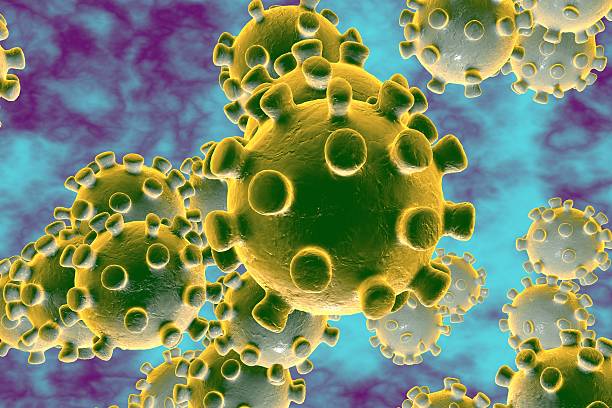Title: The Long-Awaited Conclusion: Nearing the End of the Coronavirus Era
In the wake of the unprecedented global upheaval caused by the coronavirus pandemic, the world has been fervently awaiting the moment when the pandemic's grip on our lives would finally relent. After enduring countless challenges, losses, and disruptions, there is a growing sense of hope that we are indeed nearing the end of the coronavirus era. As science, society, and solidarity converge, the trajectory toward the conclusion of this crisis becomes more tangible.
The Journey Thus Far:
Over the past few years, the coronavirus, scientifically known as SARS-CoV-2, has posed immense challenges to public health, economies, and daily routines. The outbreak, which began in late 2019, rapidly evolved into a full-blown pandemic, with governments worldwide implementing lockdowns, travel restrictions, and other containment measures in a bid to curb its spread.
The Scientific Triumph:
Central to the effort to end the pandemic has been the incredible achievements of the scientific community. In record time, multiple highly effective vaccines were developed using innovative technologies, marking a monumental milestone in medical history. These vaccines, based on messenger RNA and viral vector platforms, demonstrated unparalleled efficacy in preventing severe illness and significantly reducing transmission rates. Their rapid development and deployment showcased the remarkable potential of collaboration, innovation, and human determination.
The Vaccination Campaign:
Mass vaccination campaigns quickly became the linchpin of the global strategy to halt the pandemic's course. Governments, NGOs, and pharmaceutical companies worked in tandem to ensure equitable distribution of vaccines to every corner of the world. Despite initial challenges related to vaccine supply chains, hesitancy, and distribution disparities, the global vaccination effort gained momentum, and millions of people received their doses, contributing to the creation of a shield against the virus.
Social Resilience and Adaptation:
The pandemic's duration prompted societies to adapt to new norms. Remote work, virtual education, and telehealth services emerged as viable alternatives to traditional modes of interaction. While the transition was not without its challenges, it underscored humanity's capacity for resilience and innovation. Individuals, communities, and businesses showcased their ability to adapt to adversity, further propelling the world toward the pandemic's end.
Remaining Challenges and Vigilance:
As the pandemic's end appears on the horizon, it is crucial to remain vigilant. New variants of the virus continue to emerge, reminding us of the virus's ability to mutate and potentially evade immunity. Thus, ongoing research, surveillance, and vaccine updates remain paramount to staying ahead of the virus's evolution.
Global Collaboration:
The coronavirus pandemic brought the world closer together in more ways than one. International collaborations in scientific research, data sharing, and resource allocation demonstrated the potential for global unity in the face of adversity. Organizations like the World Health Organization (WHO) played pivotal roles in coordinating responses and providing guidance, underscoring the importance of international institutions in addressing global challenges.
Preparing for the Post-Pandemic World:
As the world transitions into the post-pandemic era, it is essential to reflect on the lessons learned. The pandemic exposed vulnerabilities in healthcare systems, social safety nets, and global supply chains. The imperative for investment in public health infrastructure, disaster preparedness, and equitable access to resources has become glaringly apparent. Moreover, the recognition of the interconnectedness of our world serves as a reminder that challenges such as infectious diseases and climate change can only be effectively addressed through collective action.
A Glimpse of Normalcy:
As vaccination rates climb and infection numbers decline in many parts of the world, signs of pre-pandemic life have begun to reemerge. Restaurants are welcoming diners back, live events are taking place, and hugs are being exchanged among loved ones. These small yet significant steps mark a shift toward a semblance of normalcy that was sorely missed during the pandemic's darkest days.
In Conclusion:
The conclusion of the coronavirus era is undoubtedly within reach, but it requires continued dedication, collaboration, and vigilance from every individual and community. The resilience demonstrated by people across the globe, coupled with the scientific advancements that have been achieved, offer hope that a brighter future is on the horizon. As we navigate the final stretch of this challenging journey, let us remember the lessons learned and carry forward the spirit of solidarity that emerged in the midst of adversity. The coronavirus pandemic will forever remain a transformative chapter in history, underscoring the indomitable spirit of humanity.
In the wake of the unprecedented global upheaval caused by the coronavirus pandemic, the world has been fervently awaiting the moment when the pandemic's grip on our lives would finally relent. After enduring countless challenges, losses, and disruptions, there is a growing sense of hope that we are indeed nearing the end of the coronavirus era. As science, society, and solidarity converge, the trajectory toward the conclusion of this crisis becomes more tangible.
The Journey Thus Far:
Over the past few years, the coronavirus, scientifically known as SARS-CoV-2, has posed immense challenges to public health, economies, and daily routines. The outbreak, which began in late 2019, rapidly evolved into a full-blown pandemic, with governments worldwide implementing lockdowns, travel restrictions, and other containment measures in a bid to curb its spread.
The Scientific Triumph:
Central to the effort to end the pandemic has been the incredible achievements of the scientific community. In record time, multiple highly effective vaccines were developed using innovative technologies, marking a monumental milestone in medical history. These vaccines, based on messenger RNA and viral vector platforms, demonstrated unparalleled efficacy in preventing severe illness and significantly reducing transmission rates. Their rapid development and deployment showcased the remarkable potential of collaboration, innovation, and human determination.
The Vaccination Campaign:
Mass vaccination campaigns quickly became the linchpin of the global strategy to halt the pandemic's course. Governments, NGOs, and pharmaceutical companies worked in tandem to ensure equitable distribution of vaccines to every corner of the world. Despite initial challenges related to vaccine supply chains, hesitancy, and distribution disparities, the global vaccination effort gained momentum, and millions of people received their doses, contributing to the creation of a shield against the virus.
Social Resilience and Adaptation:
The pandemic's duration prompted societies to adapt to new norms. Remote work, virtual education, and telehealth services emerged as viable alternatives to traditional modes of interaction. While the transition was not without its challenges, it underscored humanity's capacity for resilience and innovation. Individuals, communities, and businesses showcased their ability to adapt to adversity, further propelling the world toward the pandemic's end.
Remaining Challenges and Vigilance:
As the pandemic's end appears on the horizon, it is crucial to remain vigilant. New variants of the virus continue to emerge, reminding us of the virus's ability to mutate and potentially evade immunity. Thus, ongoing research, surveillance, and vaccine updates remain paramount to staying ahead of the virus's evolution.
Global Collaboration:
The coronavirus pandemic brought the world closer together in more ways than one. International collaborations in scientific research, data sharing, and resource allocation demonstrated the potential for global unity in the face of adversity. Organizations like the World Health Organization (WHO) played pivotal roles in coordinating responses and providing guidance, underscoring the importance of international institutions in addressing global challenges.
Preparing for the Post-Pandemic World:
As the world transitions into the post-pandemic era, it is essential to reflect on the lessons learned. The pandemic exposed vulnerabilities in healthcare systems, social safety nets, and global supply chains. The imperative for investment in public health infrastructure, disaster preparedness, and equitable access to resources has become glaringly apparent. Moreover, the recognition of the interconnectedness of our world serves as a reminder that challenges such as infectious diseases and climate change can only be effectively addressed through collective action.
A Glimpse of Normalcy:
As vaccination rates climb and infection numbers decline in many parts of the world, signs of pre-pandemic life have begun to reemerge. Restaurants are welcoming diners back, live events are taking place, and hugs are being exchanged among loved ones. These small yet significant steps mark a shift toward a semblance of normalcy that was sorely missed during the pandemic's darkest days.
In Conclusion:
The conclusion of the coronavirus era is undoubtedly within reach, but it requires continued dedication, collaboration, and vigilance from every individual and community. The resilience demonstrated by people across the globe, coupled with the scientific advancements that have been achieved, offer hope that a brighter future is on the horizon. As we navigate the final stretch of this challenging journey, let us remember the lessons learned and carry forward the spirit of solidarity that emerged in the midst of adversity. The coronavirus pandemic will forever remain a transformative chapter in history, underscoring the indomitable spirit of humanity.




